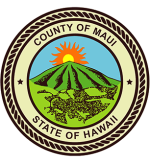With the support of the County of Maui and other Maui organizations, the PWF Reef Cleanup program has removed
4,155
pounds of debris from the reef.
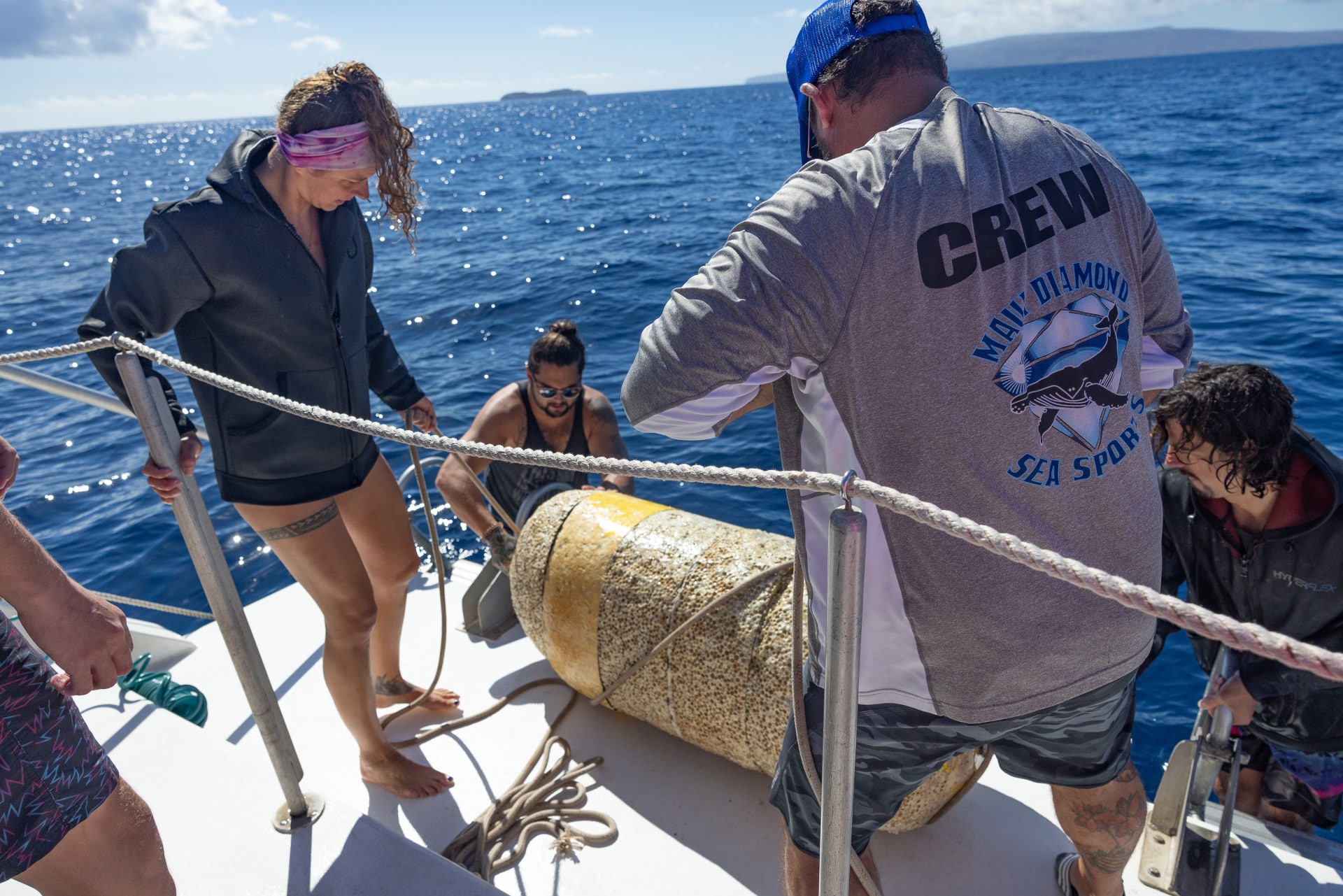
The Problem
Keoneʻōʻio, a favored location for recreational fishers, has been accumulating debris due to common fishing techniques that leave behind fishing lines and lead weights. This accumulation isn’t due to negligence, but rather a byproduct of the fishing method itself. Over time, this has resulted in an estimated eight tons of debris in the bay, making it a threat to marine life and the local environment.
Why Action is Needed
This fishing debris presents serious hazards:
- Entanglement Risks: Fishing lines and other debris pose a significant threat to marine life, such as sea turtles, dolphins, and the endangered Hawaiian Monk Seal. Studies by PWF indicate that 27% of bottlenose dolphins and 13% of spotted dolphins in Maui Nui display scars from fishery-related gear.
- Human Safety: Divers, snorkelers, and boaters in La Perouse Bay also risk becoming entangled in discarded fishing gear.
- Lead Poisoning: Lead fishing weights can dissolve into the water, posing health risks to marine life and potentially humans.
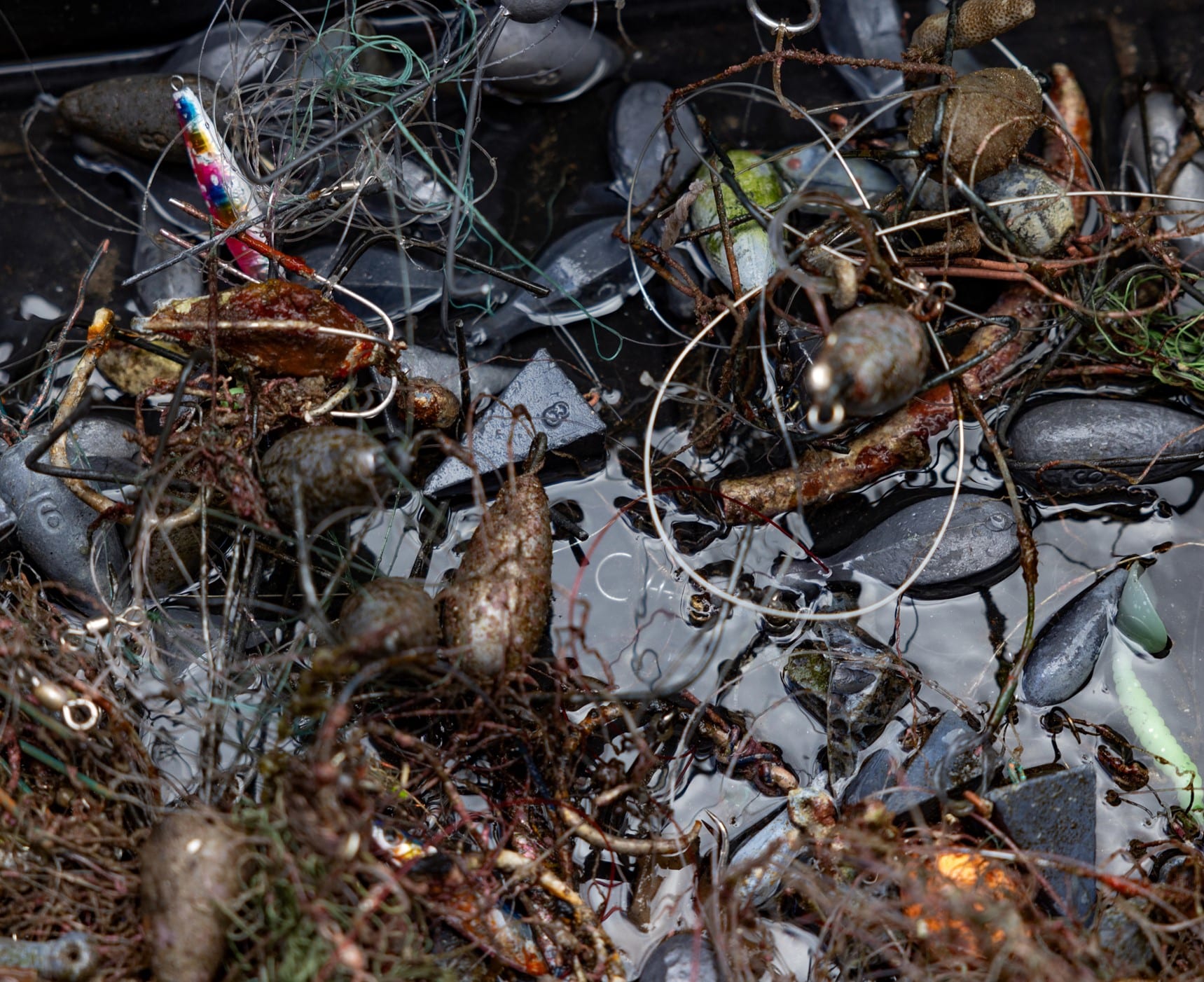
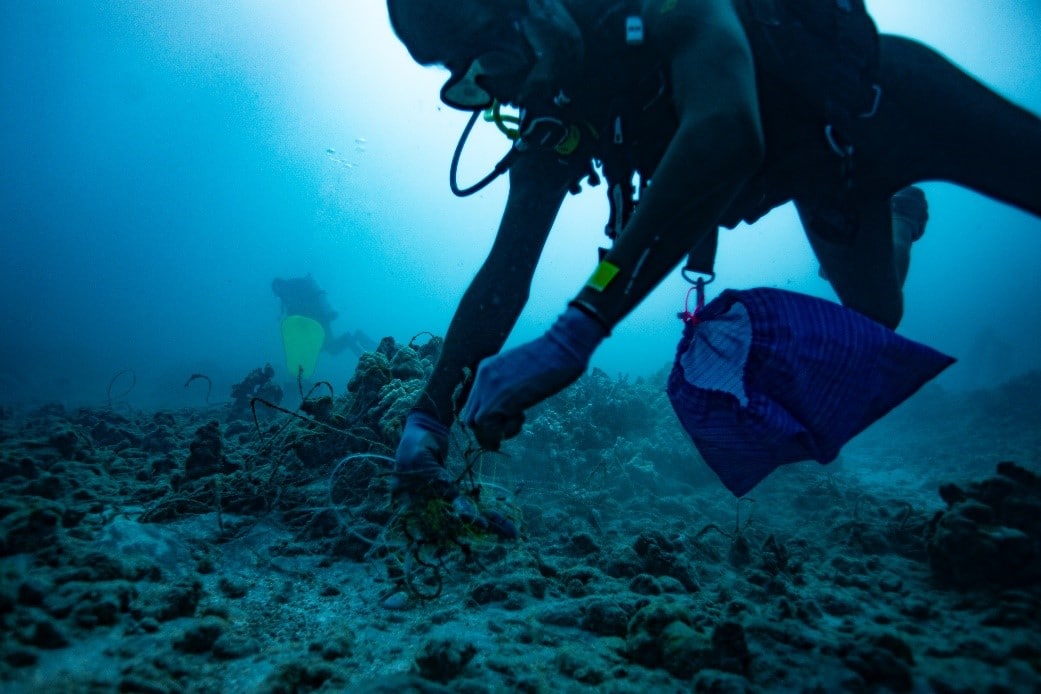
The Cleanup Effort
PWF will conduct multiple boat-based scuba diving trips to clear debris and help protect the area’s coral reef ecosystem, with the goal of removing 700 pounds of debris per quarter. In addition, collected lead weights will be repurposed for a second use. This cleanup builds on earlier efforts in 2024, when 1,000 pounds of debris were removed from the bay.
Community and Awareness
The local fishing community is becoming actively involved and recognizes the benefits of a clean environment for both their fishing activities and the marine ecosystem. PWF is raising awareness about the magnitude of this challenge and fostering community collaboration to create a technical solution. We welcome feedback on how to solve this debris problem and have been working with our partners, Ocean Defenders Alliance and Global Ghost Gear Initiative to find solutions.
We are grateful for the support from the County of Maui Environmental Protection & Sustainability Division! Our work in Keoneʻōʻio is fully funded through their Green Grants program until June 30, 2026.
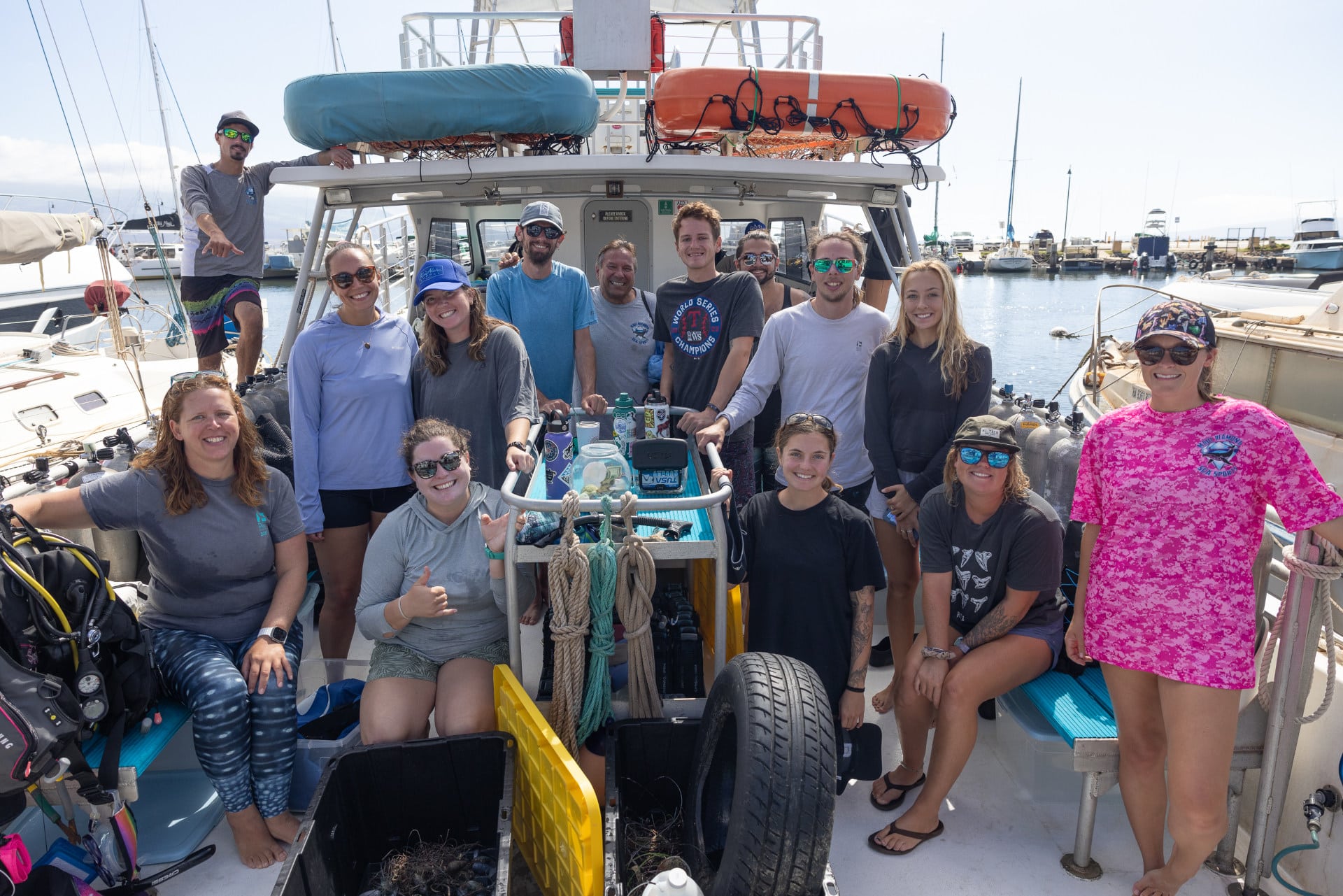
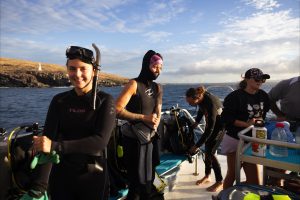
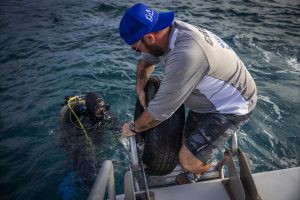
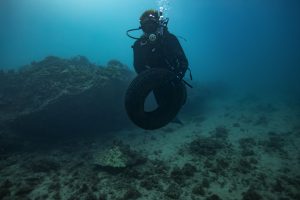
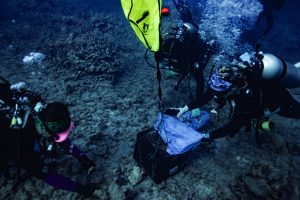
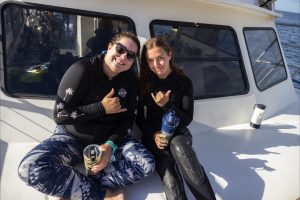
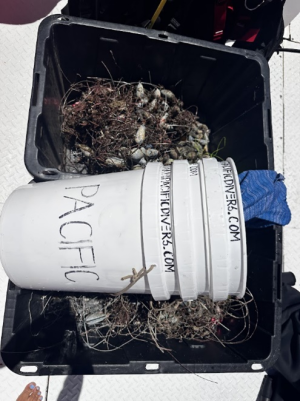
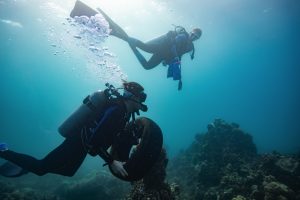

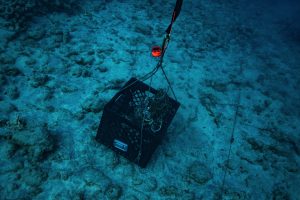

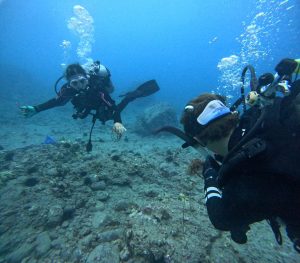
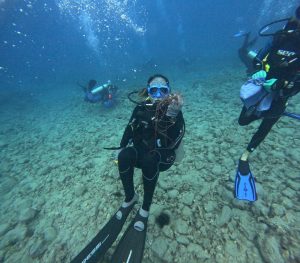
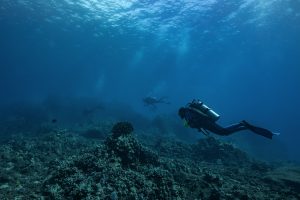
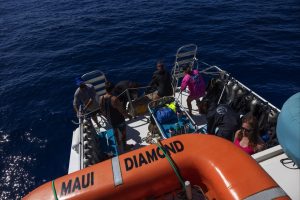
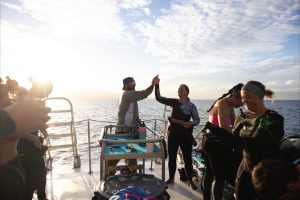
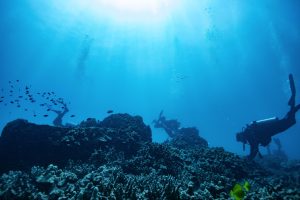
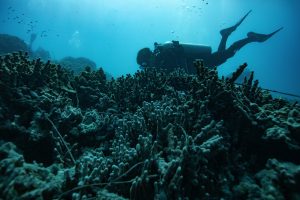
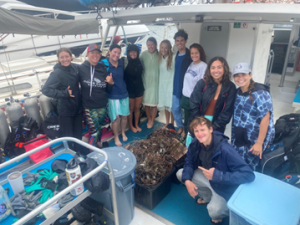
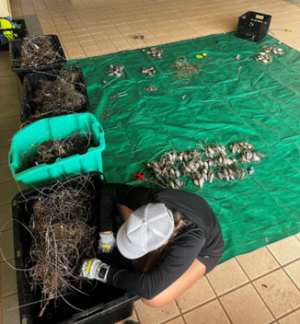

The debris is in areas too deep for traditional cleanup methods like snorkeling or free diving. Scuba diving from a boat is the only way to reach these problem areas.
In Partnership With:
County of Maui
Office of Economic Development
The County of Maui Office of Economic Development works in partnership with the community, business and government sectors to strengthen and diversify the economy by supporting existing businesses. In addition, they assist in the attraction, development and expansion of new businesses and events that will in turn provide new jobs for our community.


